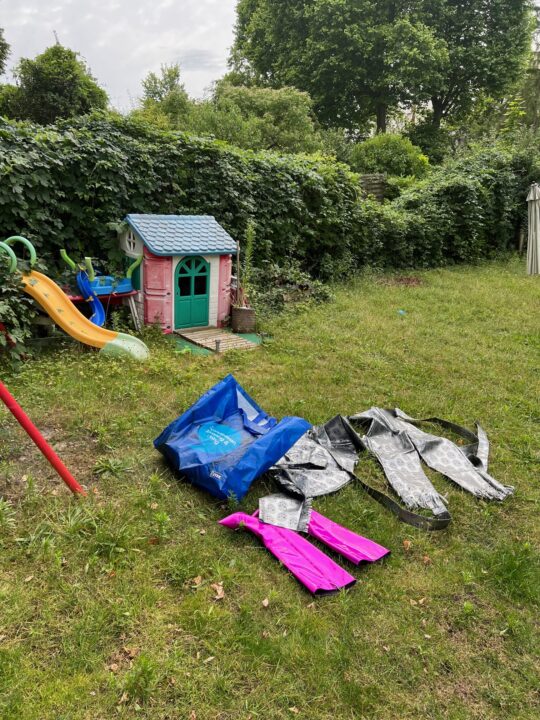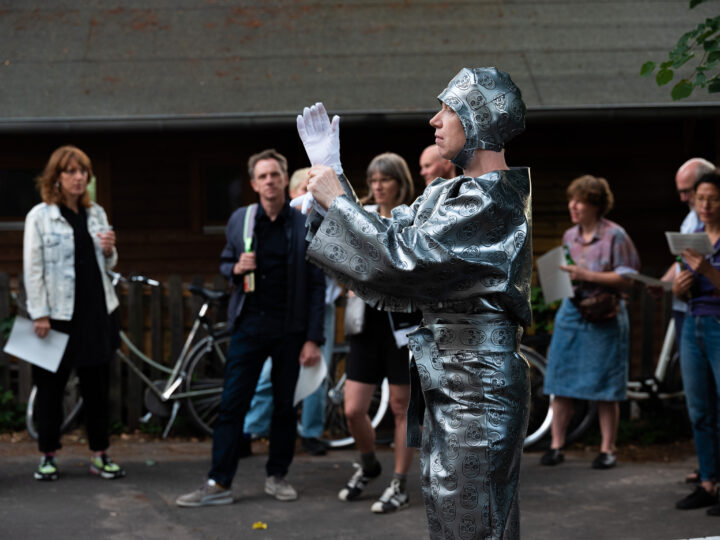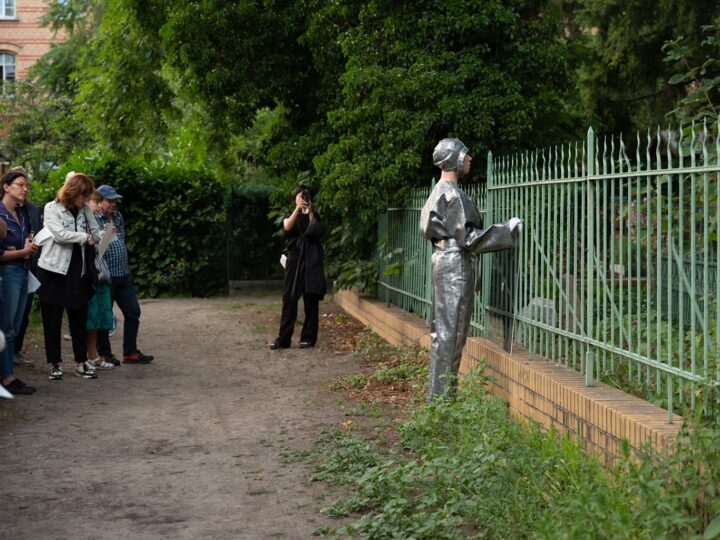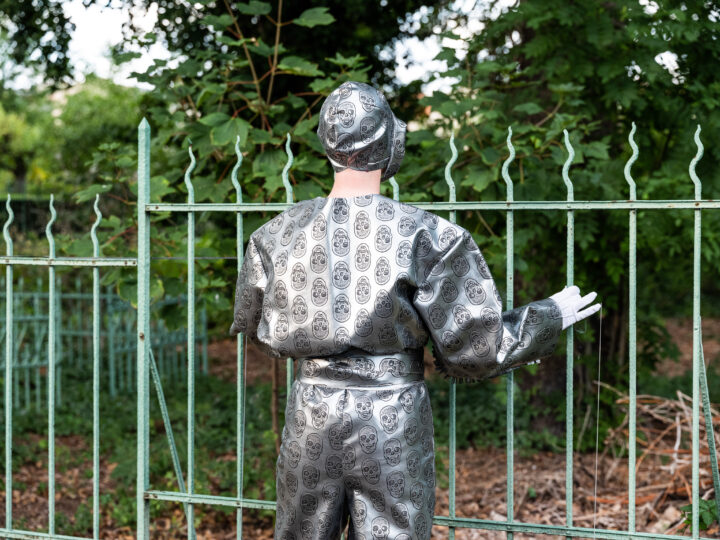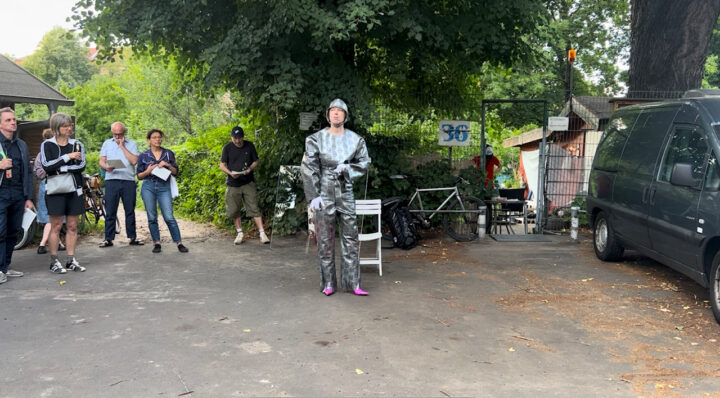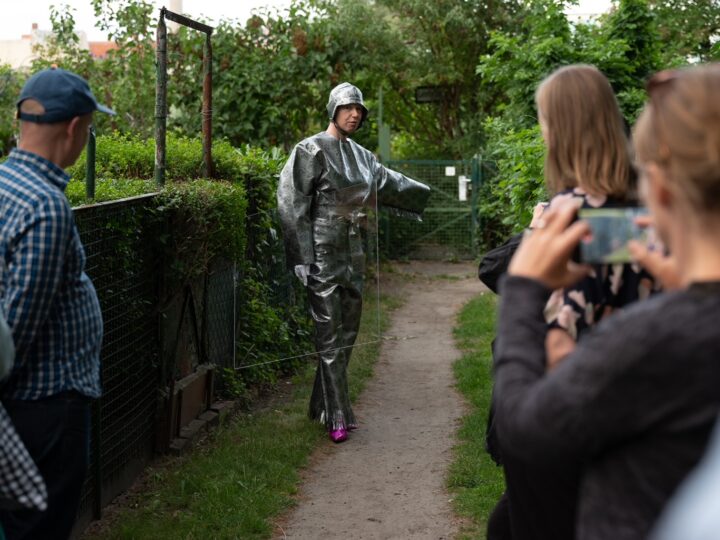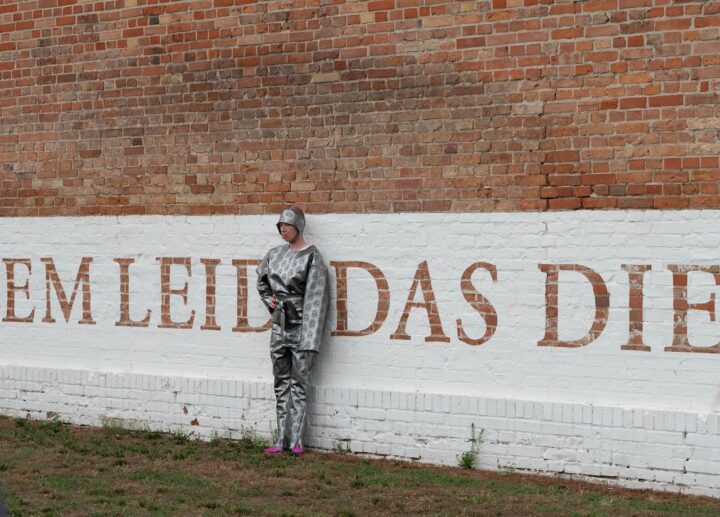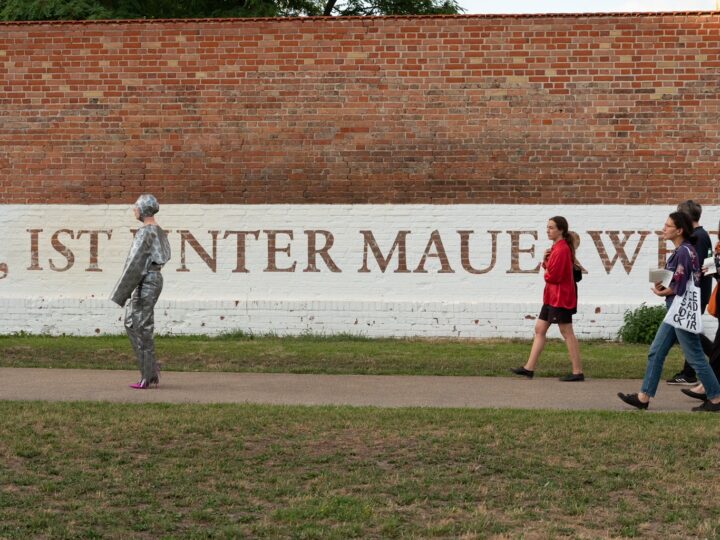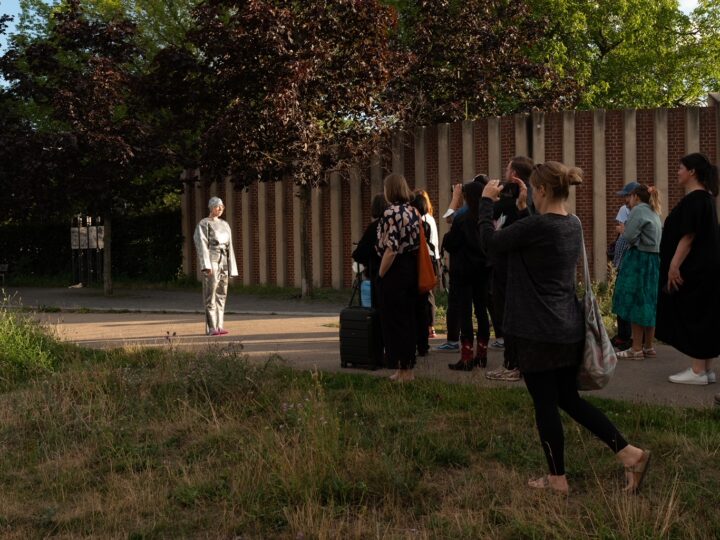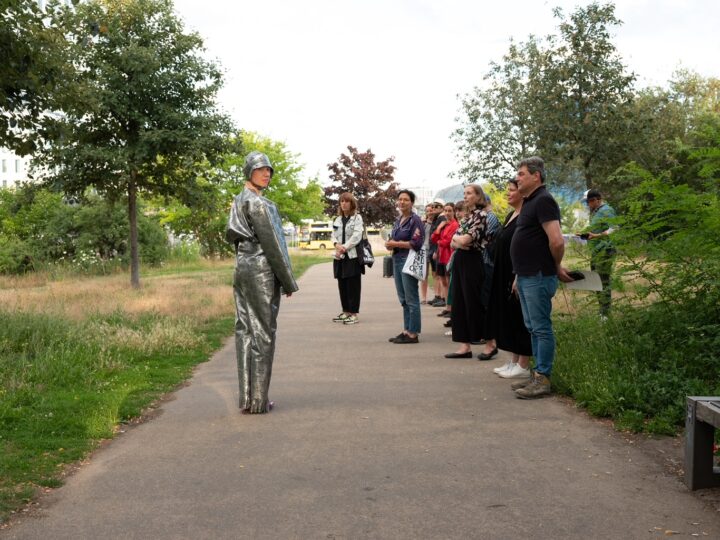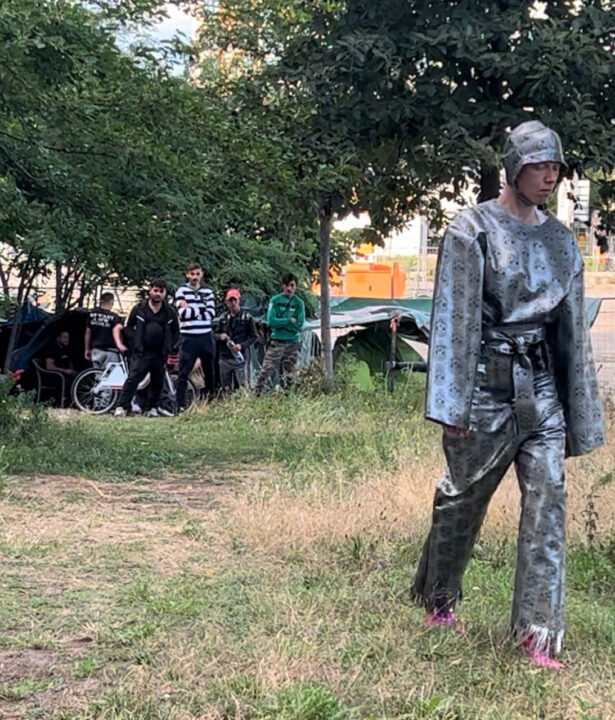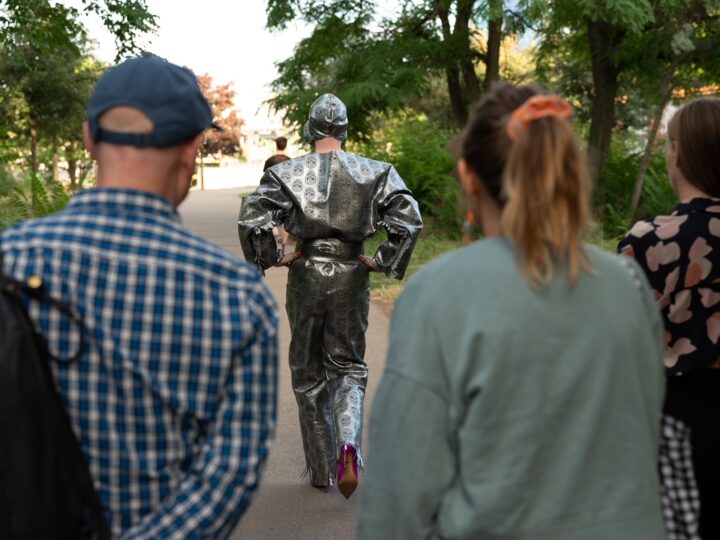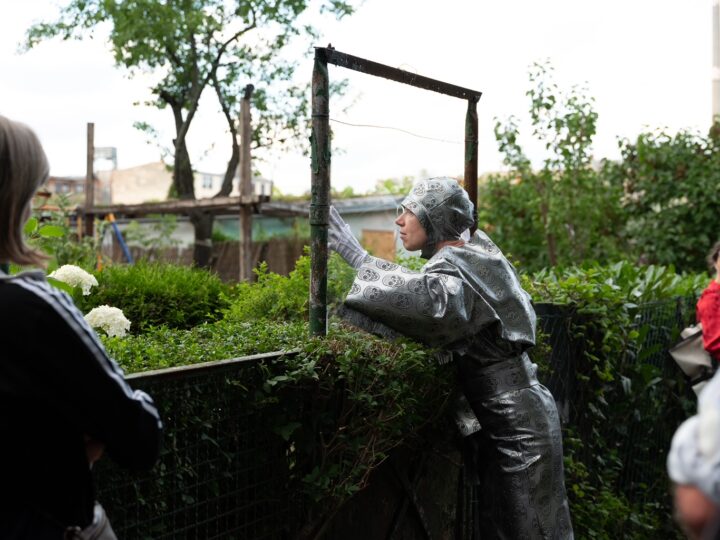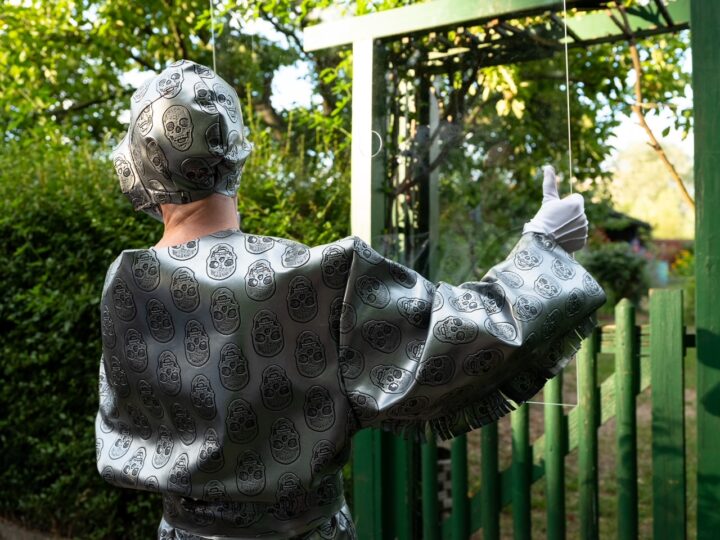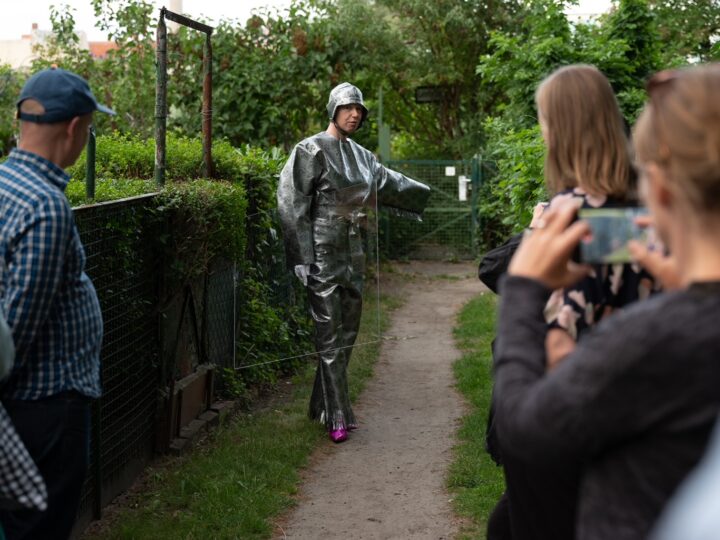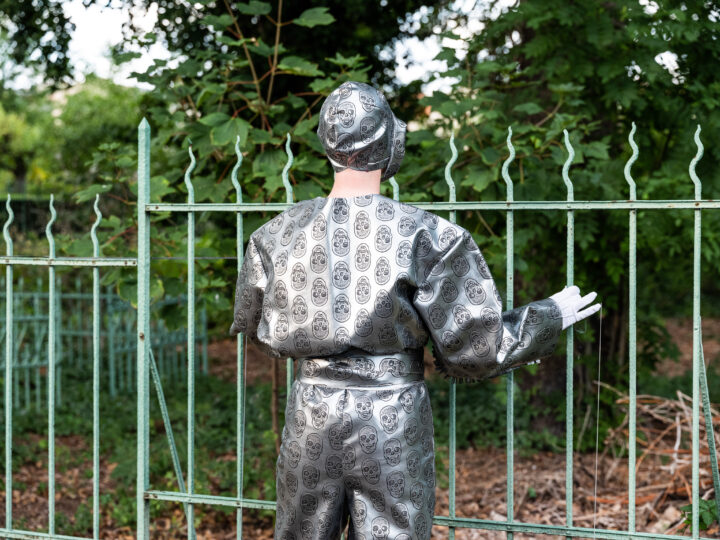
Beton is a project by Christoph Zwiener
Photo: Max Stolberg
It was the privilege of a Prussian prison official to be buried in a cemetery for civil servants. Between 1842 and 1958 a cemetery for civil servants was established on Lehrter Strasse. The cemetery was laid out in the format of a square, and has been a listed building since 1958. The prisoners’ cemetery was located in a mirror image opposite the civil servant cemetery on the so-called prison garden land. The remains of this cemetery are now hidden under the grid of the Lehrter Straße e.V. allotment garden site.
While the burial ground for the prisoners was leveled, the civil servants’ cemetery remains as a fenced-in section in the middle of the allotment gardens to this day.
The cellular prison at Lehrter Strasse 8 was also called the “Prussian Model Prison Moabit” (1819-1935). The model for this prison was the Pentonville prison in London, which was built according to the so-called panoptic system. […]
Michel Foucault sees nothing less than the birth of civil society prepared in the architecture implemented here. In his well-known work “Surveillance and Punishment” – The Birth of the Prison (1975), he writes “This closed, parceled out, seamlessly monitored space, within which individuals are clamped into fixed places, the slightest movements controlled and all events are registered, […] violence exercised without division in a rupture-free hierarchy, each individual is constantly apprehended, examined, and divided among the living, the sick, and the dead – this is the compact model of a disciplinary facility.”
The rigorous parcelling out of space in the former Moabit prison and the no less orderly plots of today’s allotment gardens seem like a grotesque projection of the site’s history into the present day. The overgrown cemetery for civil servants, the allotment gardens with their plots, the tent city of homeless people located nearby, the Berlin Central Station located in the immediate vicinity and the history park “Moabit Prison Historical Park” are exposed during the performance in the sense of an encirclement.
Sabine Reinfeld 2022
